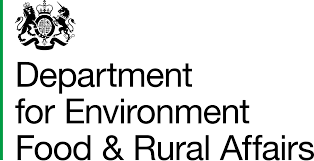PRESS RELEASE : UK and Switzerland ink new agreement recognising professional qualifications [June 2023]
The press release issued by the Department for Business and Trade on 14 June 2023.
A new agreement recognising UK professional qualifications in Switzerland is being signed today.
- UK and Switzerland sign deal recognising professional qualifications in both countries
- UK-qualified professionals in sectors such as architecture and audit will not have to fully requalify to work in Switzerland
- Agreement follows launch of talks on a new UK-Swiss trade deal to boost trade between the two services superpowers.
A new agreement recognising UK professional qualifications in Switzerland will be signed by Business and Trade Secretary Kemi Badenoch and Swiss Federal Councillor Guy Parmelin today [14 June], boosting trade between the two countries.
Proving you have the right qualifications is key to winning contracts in regulated sectors such as law, architecture and audit. Under the agreement, UK-qualified professionals in regulated sectors who wish to have their qualifications recognised in Switzerland will have a certain and transparent system to do so; and vice versa.
This could allow British companies to compete for more contracts in Switzerland in the long run, boosting UK services exports, growing the UK economy and encouraging Swiss investment into the UK.
The agreement has been welcomed by industry bodies and stakeholders. It will enter into force at the start of 2025 and replace interim arrangements on RPQ with Switzerland, agreed ahead of the UK’s EU Exit.
Business and Trade Secretary Kemi Badenoch said:
Supporting our flourishing services sector to sell its world-class expertise abroad is key to helping grow exports and grow the economy.
Following the start of free trade deal talks last month, this agreement will hopefully ensure UK companies compete for more contracts in Switzerland in the future, boosting UK services exports, and encouraging new Swiss investment into the UK.
The UK and Switzerland are among the world’s leading service economies, with their services sectors each representing over 70% of GDP for both economies. We traded £24 billion of services between us in 2022, making Switzerland the UK’s 7th largest partner for services trade.
President of the Law Society of England and Wales Lubna Shuja said:
Switzerland is the third largest UK legal services export market in Europe, so this deal will benefit not only our members but also the wider economy.
Legal services facilitate all international business transactions and provide crucial support to UK and multinational firms wanting to export. The sector consistently generates a trade surplus with net exports of UK legal services standing at £5.4bn in 2021.
Founder and Principal of Studio Seilern Architects Christina Seilern said:
My upbringing in the Swiss Alps has been instrumental to my career as an architect, which has been rooted in London for nearly two decades and encompasses important public projects and civic interventions in both countries, including recently the major Andermatt Concert Hall at the historical centre of Switzerland.
As architects, our thinking and our industry are global. This agreement lowers the barriers for us to do our work, and ensures that we can continue to make meaningful contributions to our cities, economies, and communities in Switzerland and the UK.
This agreement follows the launch of negotiations last month in Bern on a new UK-Switzerland free trade agreement to boost trade between the two services superpowers.
A new, modernised free trade agreement with Switzerland will add to the UK’s growing armoury of powerful service-focused deals by removing market access barriers, improving regulatory cooperation and enabling UK firms to compete on an equal footing in Switzerland.
The RPQ agreement also sets out a bespoke route to recognition for certain legal professionals, allowing lawyers to qualify in the other country after registration and a 3-year practise period, subject to conditions set out in the agreement.
It also safeguards the autonomy of UK regulators to independently set and maintain standards and decide who is fit to practise the profession.



